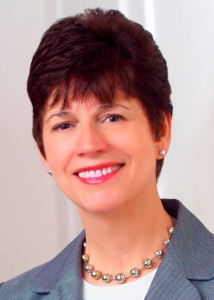Laura Mason Smith
President, Mason-Smith Success Strategies
What are three things you wish you’d known as you embarked on your career?
- I wish I’d known more about my innate personality and what kind of environment I’d thrive in and what environment would drain me of energy. For example, I’m an intuitive extrovert, so I love being around lots of different people and having lots of new challenges and experiences. I learned this over time, but it was definitely ‘on the job training.’
- I wish I’d known about the importance of annually developing a long-range and short-range personal strategic plan, which I do now but didn’t do starting out. It’s amazing what gets accomplished when an individual takes time annually to assess their internal and external environments, identify their core values, create a personal mission or purpose statement, and prioritize long-range goals and one-year objectives and action plans to achieve their personal mission/values/goals.
- I wish I’d known how powerful it is to practice gratitude for everything, the good and the bad. Some of my greatest life lessons have come from what initially I thought was bad. Also, I wish I’d known that you can’t do everything you think you should do and you have to set priorities (rather than just beat yourself up!). We’re all unique, we all have special gifts, and it’s a bummer and waste of time to compare ourselves to others.
Did you have a mentor? If so, what was the most important piece of advice they gave you?
I’ve been fortunate to have a few amazing mentors. Primarily I learned about leadership from watching them in action and seeing their character and ethics shine. Two small examples of their advice that have stuck with me are:
- Early in my work career I made a decision that caused my boss to get reprimanded by his boss. I was devastated and ready to offer my resignation! The counsel from my boss/mentor was, “That wasn’t good, but we all make mistakes. The worst thing that could happen now would be for you to ask my permission on everything and not take any more risks. Keep taking risks, just be a little more careful.” Whew!
- When I was the VP of Marketing for a start-up commercial bank here in Sacramento, our CEO gave a copy of the marketing plan I had just developed to one of our competitor banks. In horror, I asked him why he did it? His advice has always stayed with me: “If you’re good, it doesn’t matter. They won’t be able to execute on our plan anyway.” And, he was right.
How did/do you handle work/life balance?
Before kids, I was out in the community almost every night at community functions. I find that kind of thing fun, so it balanced well with my life then. After kids, I cut back substantially from evening activities. I made a lot of tough choices to not pursue “opportunities” that could have been wonderful for business but felt wrong for me in my gut. My gut reaction has been a good measure of what will balance and what doesn’t. Also, often when faced with significant choices between work/life priorities, I pretend it’s ten years from now and ask myself which choice I will be happier I pursued.
Do you have any suggestions of books, articles, websites, etc. that might help a young professional?
I LOVE to read and collect books and articles. I have zillions of business books, but some personal development books that have been life changing for me are Taming Your Gremlin, by Rick Carsen; Transitions, by William Bridges; Feel the Fear and Do It Anyway, by Susan Jeffers; Love is Letting Go of Fear, by Jerry Janpolsky; Please Understand Me, by Keirsey & Bates; and The Artists Way, by Julia Cameron.
How important is it to be involved in organizations outside of work (church, networking, philanthropy, alumni, athletics, etc.)? Why?
I think it’s very, very important to be involved in the community (I also find this to be really fun and rewarding, too). Volunteering for committees, boards, or community efforts gives people a chance to try on new roles and stretch themselves; meet new people and network; and feel good doing something for others. My only advice is to find a community organization that you believe in and care about. Otherwise, you won’t want to make a real commitment, which can just make you look bad. I learned the hard way that getting involved in an organization that I didn’t really care about but would look good on my resume was a decision I really regretted.
What do you love about Sacramento?
I’m passionate about the Sacramento region! It’s like a big, small town where you always run into people you know. I think our greatest asset is our people, and I find people in Sacramento to be caring, welcoming, gracious, hard working, creative, and fun. I love the river and gorgeous American River Parkway, our beautiful trees, all our cultural activities and art, our exquisite weather, all the places to walk and bike, and the proximity to the mountains, wilderness, whitewater rafting, and hiking.
Is there anything else you’d like to tell the 40 and under business professionals in our region?
Think strategically, work hard, continuously learn new things, stretch yourself, and take risks. Enjoy your life and don’t take yourself too seriously. Build fun into your life and laugh a lot, especially at yourself. Treasure your family and friends, and do things for others. I have found that everything good you give to others will be returned to you in greater measure than you can imagine. I like Maria Shriver’s advice that goes something like “we can have it all, we just can’t have it all at the same time.” So, be grateful for whatever comes your way, be gentle on yourself and others, and my experience is that everything will turn out just fine.


